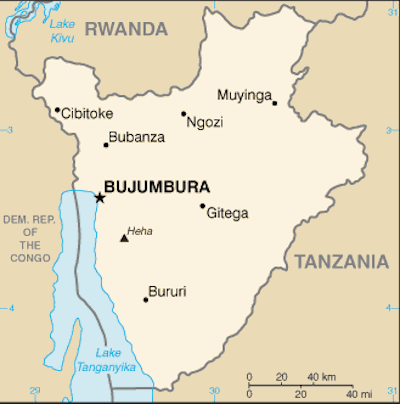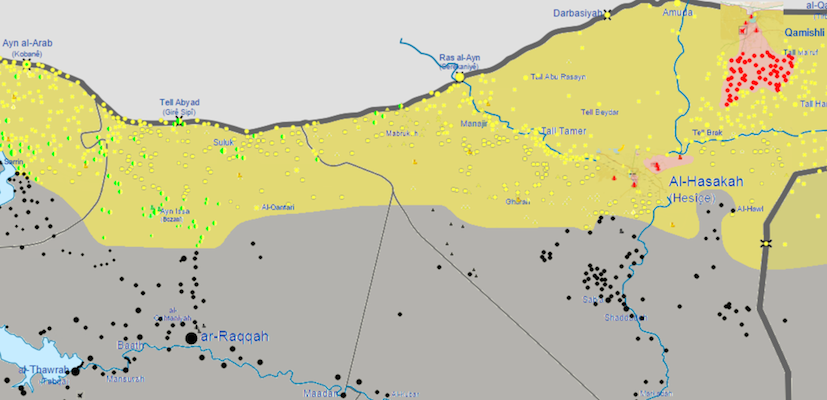Until recently, a major African ally of the United States and a purported model for other African nations. Now, a mass exodus from the capital, daily body dumps of assassinated figures, and a fracturing military.

“Burundians flee capital over fears of violence” – France24, November 6, 2015:
Thousands of residents have fled the Burundian capital of Bujumbura in recent days over fears of escalating violence as the United Nations warned there was a risk that the central African country could slip back into civil war.
[…]
Meanwhile, the Brussels-based International Crisis Group (ICG) also drew attention to dangerous “hardline rhetoric” in Burundi, drawing parallels with the hate-filled climate that led to the 1994 Rwandan genocide.
United Nations statement, via AllAfrica.com, November 7, 2015:
The statement said the Secretary-General is alarmed that in recent weeks, the discovery of the bodies of civilian victims, many apparently summarily executed, has become a regular occurrence in several neighbourhoods of Bujumbura, where just today, Welly Nzitonda, the son of prominent Burundian human rights defender Pierre-Claver Mbonimpa was found dead following his arrest by the police in the morning.
Further, Mr. Ban in the statement also condemned public statements that appear to be aimed at inciting violence or hatred towards different groups in Burundian society.
“Inflammatory rhetoric is reprehensible and dangerous; it will only serve to aggravate the situation in the country. [The Secretary-General] calls for accountability for those who have engaged in publicly inciting violence,” the statement said.
The ethnically mixed military from the 2005 peace accords, even in the face of a renegade coup attempt in May, had largely been a lone rock of stability in the face of mounting ethno-political tensions earlier this year. Less than a month ago, reports emerged that that too looks increasingly precarious…
“Burundi: Cracks Widen Within Burundi’s Army,” IRIN, October 12:
A recent post on a Burundi news blog by Thierry Vircoulon of the International Crisis Group (ICG) said the [integrated military] was “dangerously close to rupture.”
IRIN’s interviews with more than a dozen people, including leading Burundian civilians, analysts and members of the military, indicate that a faction of former Hutu rebels has embarked on a campaign of harassing, abducting, detaining, and in some cases killing, members of the army’s old guard, as well as others perceived to oppose President Pierre Nkurunziza, himself a former rebel leader.
This October assessment marks a stark contrast with International Crisis Group’s prior assessment that institutional divisions designed in by the Arusha Accords of 2005 “could ironically help the army stay together.”
One wonders if it could, after all, go the way of South Sudan’s “unified” military which has now splintered back into rival ethnic groups from the former rebel factions before independence.
The United States suspended military cooperation and its major training program in Burundi back in July. In August, the president openly announced his intention to expand “patriotic” teenage death squads.





